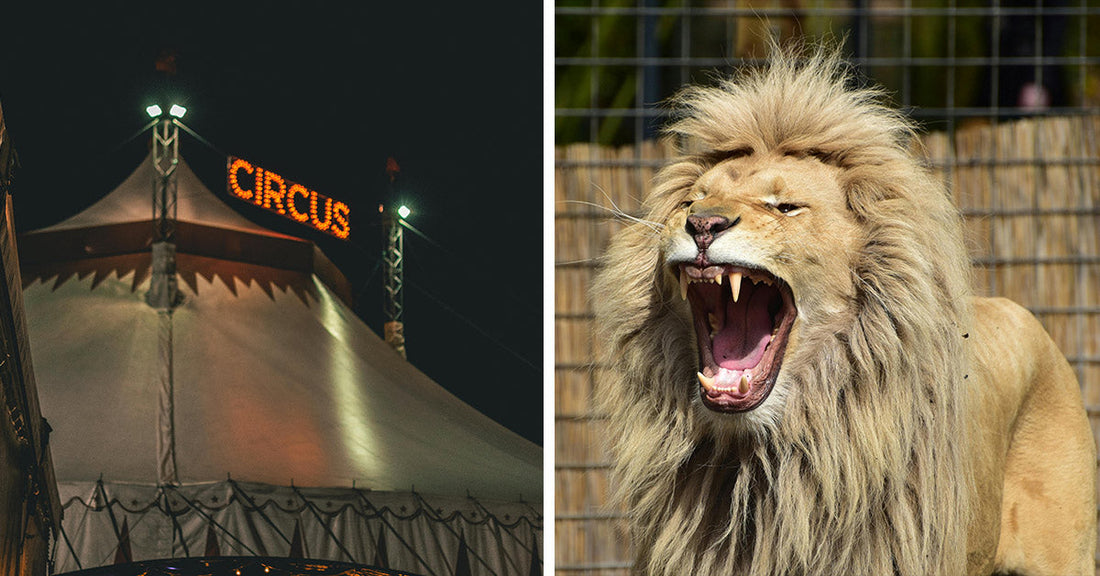Washington Takes Historic Step to Stop Animal Cruelty in Traveling Circus Shows
Matthew Russell
Washington state has recently made history with the passage of Senate Bill 5065, which prohibits the use of wild animals in traveling circus performances. This landmark decision, signed into law by Governor Bob Ferguson in late April 2025, marks a significant victory for animal rights activists and the broader public, as the state becomes the 12th in the U.S. to enforce such restrictions.
The new legislation bans the use of elephants, bears, nonhuman primates, and wild cats in circus acts, aligning Washington with other progressive states such as Maryland and Massachusetts, which passed similar laws in 2024. Humane World for Animals reports that this bill will ensure that vulnerable animals no longer endure the grueling travel and inhumane conditions associated with circus performances.

Washington has passed a law banning wild animals in traveling circuses.
Washington Joins National Movement Against Animal Exploitation
The decision to ban wild animals from circus performances is part of a growing movement across the nation that aims to reduce animal suffering and exploitation in entertainment. Circus animals, often confined to small cages and transported across long distances, face severe psychological and physical stress.
As KOMO News reports, many of these animals are subjected to extreme cruelty, such as being forced to perform painful tricks, endure harsh training methods, and live in poor conditions. For instance, the case of Viola, an elderly elephant who was frequently seen at the Jordan World Circus, exemplifies the abuse that many circus animals suffer. In 2024, Viola managed to escape from her handlers and ran through traffic, an incident that drew significant attention to the issue of animal cruelty in traveling shows. Humane World for Animals further reports that incidents like these are not isolated, but part of a pattern of wild animals being forced into environments that endanger both their well-being and public safety.

The law prohibits elephants, bears, nonhuman primates, and wild cats.
Community Advocacy Leads to Legislative Change
The success of Senate Bill 5065 is largely due to the tireless efforts of local animal rights advocates in Washington’s Wenatchee Valley. Residents Kris Cameron and Cindy Volyn played pivotal roles in pushing for local ordinances that restrict the use of wild animals in entertainment. According to Wenatchee World, these ordinances set the stage for the statewide ban by addressing the concerns of the community, which had been vocal about the dangers posed by traveling circus animals.
Cameron, who testified in support of Senate Bill 5065, emphasized that this victory represents more than just a ban on wild animals—it marks the beginning of a broader cultural shift toward more humane treatment of all animals. She and Volyn expressed hope that similar bans could eventually extend to domestic animals used in traveling acts, as all animals suffer in these exploitative environments.

The bill aims to end the suffering of circus animals.
Impact on Traveling Circus Industry
While the law has been hailed as a win for animal rights, it presents a challenge for traveling circuses that rely on wild animals for their performances. These circuses, such as the Jordan World Circus and Culpepper & Merriweather Circus, will have to reconsider their business models. Humane World for Animals reports that the new law forces these companies to either evolve with the times by abandoning animal acts or risk being shut out of Washington state altogether. The law also serves as a wake-up call to other states and localities to reconsider the use of wild animals in entertainment, as the trend of banning animal performances continues to grow.
Circus operators may now face difficult decisions about their future operations. Some, like Ringling Bros. and Barnum & Bailey Circus, have successfully transitioned to animal-free shows. These examples prove that circuses can thrive without exploiting animals. Ringling Bros. has already set a precedent by eliminating animal acts, focusing instead on acrobatic performances and other forms of entertainment that do not rely on animal exploitation.

The legislation follows similar bans in Maryland and Massachusetts.
The Road Ahead
The battle for animal rights is far from over, but Washington’s bold move serves as a beacon of hope for activists across the country. As more states adopt similar laws, the hope is that the industry will gradually phase out the use of wild animals in entertainment altogether. The victory in Washington also contributes to the broader movement against the exploitation of animals in all forms of entertainment, paving the way for future legal reforms.
As Wenatchee World reports, the public’s increasing awareness of the suffering of circus animals, paired with sustained advocacy efforts, is shifting public opinion and legislative priorities in favor of more compassionate treatment for all animals.
While Washington’s new law represents a significant step forward, it is just one part of the larger effort to ensure the humane treatment of animals in the United States. With continued support from animal rights advocates and lawmakers, it is likely that other states will follow suit, pushing for nationwide reforms that will finally bring an end to the cruel practice of using wild animals for circus entertainment.
Click below to make a difference.

